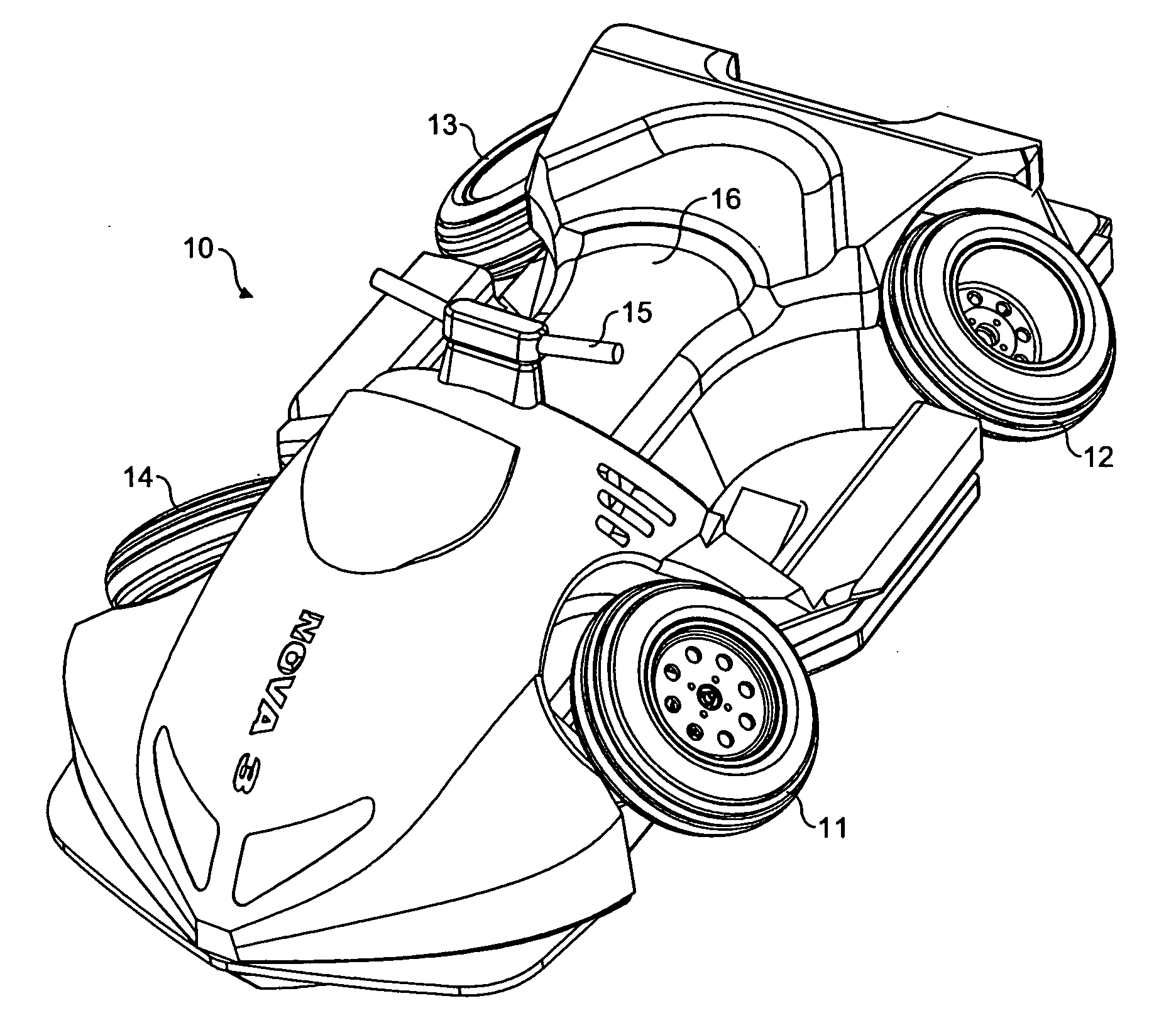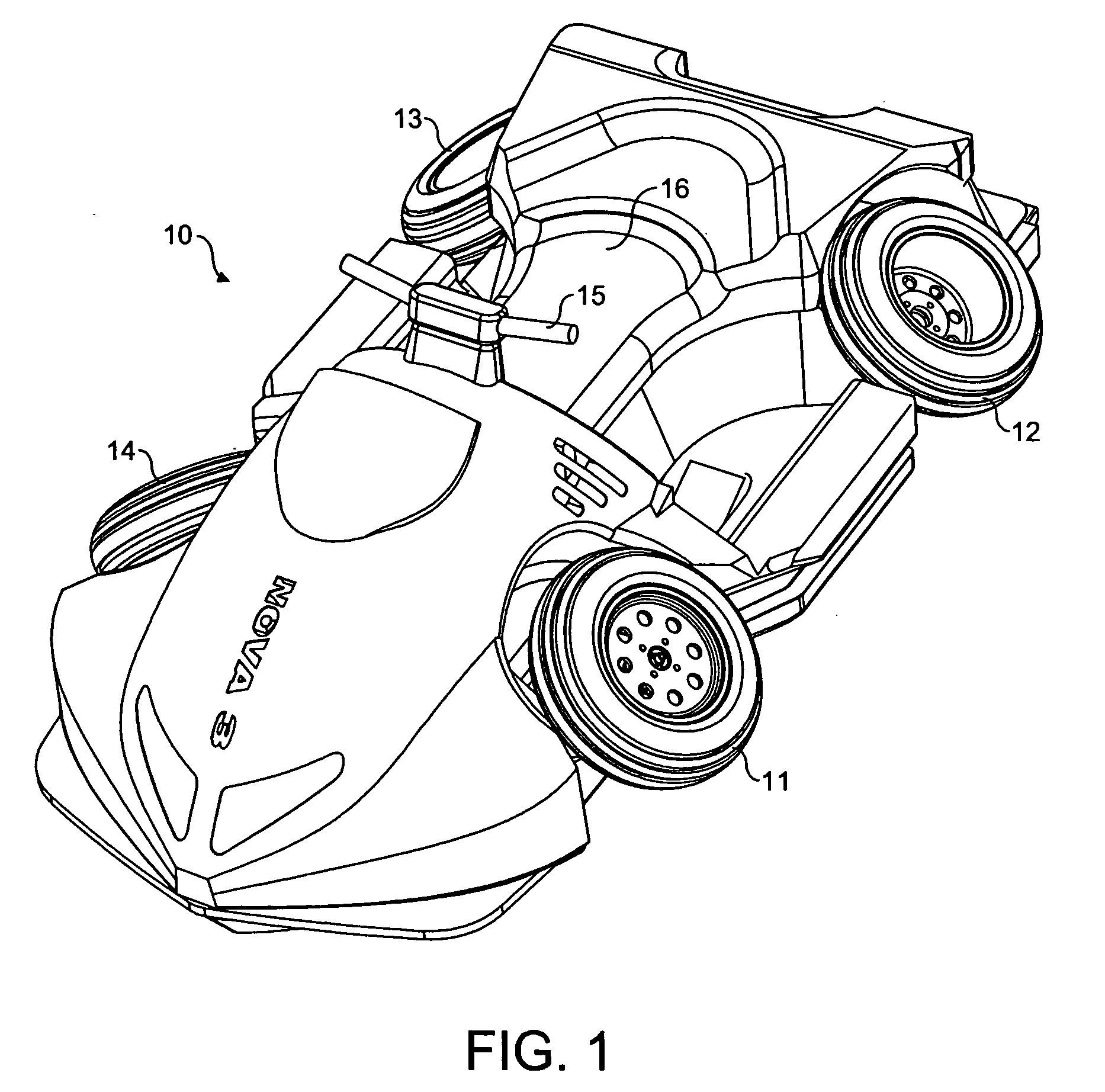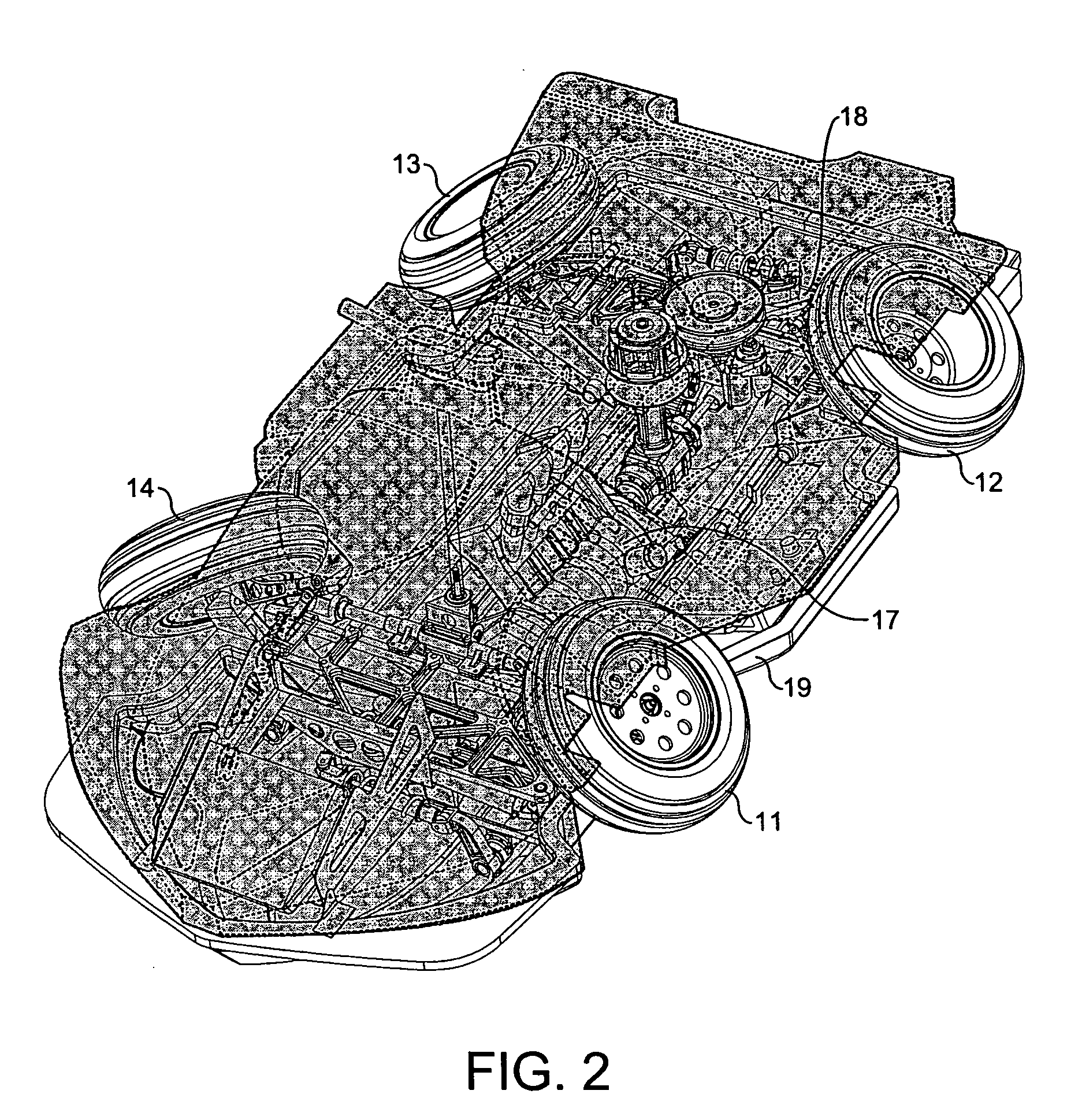Amphibious vehicle
a technology for amphibious vehicles and vehicles, applied in the field of amphibious vehicles, can solve the problems of restricting the power and/or road speed of certain types of vehicles, and imposing undesired high speed and acceleration potential on the vehicl
- Summary
- Abstract
- Description
- Claims
- Application Information
AI Technical Summary
Benefits of technology
Problems solved by technology
Method used
Image
Examples
Embodiment Construction
[0010] Turning firstly to FIG. 1 there can be seen in the Figure an amphibious vehicle 10 having four wheels 11, 12, 13 and 14, handlebars 15 for steering the front wheels 11 and 14 and a sit-astride seat 16. As can be seen in FIG. 2, there is located inside the vehicle a gasoline reciprocating piston multi-cylinder internal combustion engine 17 which when the vehicle is in land mode drives the two rear wheels 13 and 12 to rotate. The vehicle also has a jet drive 18 at the rear of the vehicle which is driven by the engine 17 to propel the vehicle 10 when operating in water mode.
[0011] The hull 19 of the vehicle has on its lower surface a planing surface (not shown) to enable the vehicle to plane across the water when in its water mode. To facilitate this the road wheels 11, 12, 13 and 14 are connected to the remainder of the vehicle by a suspension system which allows them to be moved between an extended position (as shown in FIG. 3) for land use and a retracted position (as shown ...
PUM
 Login to View More
Login to View More Abstract
Description
Claims
Application Information
 Login to View More
Login to View More - R&D
- Intellectual Property
- Life Sciences
- Materials
- Tech Scout
- Unparalleled Data Quality
- Higher Quality Content
- 60% Fewer Hallucinations
Browse by: Latest US Patents, China's latest patents, Technical Efficacy Thesaurus, Application Domain, Technology Topic, Popular Technical Reports.
© 2025 PatSnap. All rights reserved.Legal|Privacy policy|Modern Slavery Act Transparency Statement|Sitemap|About US| Contact US: help@patsnap.com



